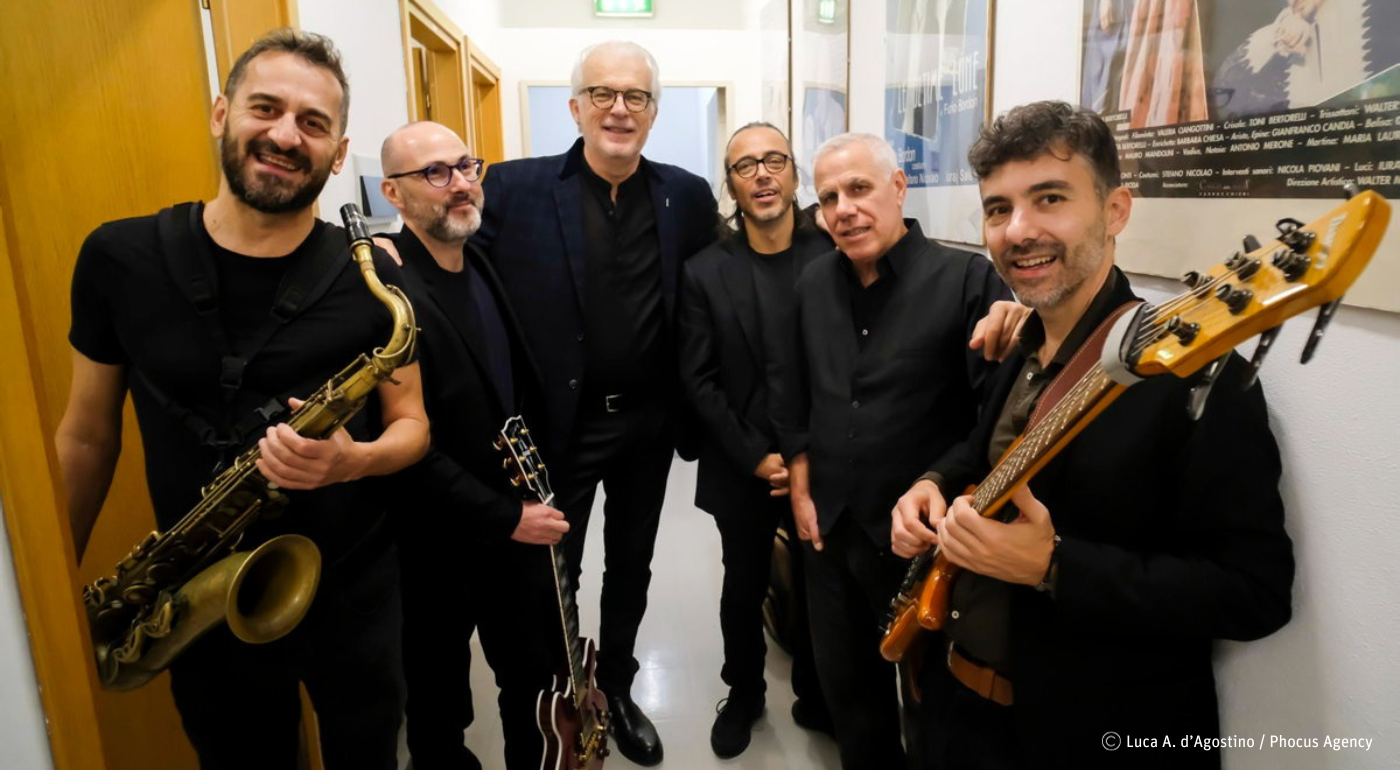VIVA/DE ANDRÉ
special edition with DANILO REA
Luigi Viva, reading
Luigi Masciari, guitar, musical direction and arrangements
Danilo Rea, piano
Francesco Bearzatti, sax, clarinet
Alessandro Gwis, piano, keyboards
Francesco Poeti, bass
Pietro Iodice, drums
Twenty-five years after the death of Fabrizio De André (January 11, 1999), Luigi Viva presents the show Viva/De André: an album with the same name has been released with the songs of “Faber” rearranged in studio by a band of excellent musicians and two very special guests: Giulio Carmassi and Michael League (Snarky Puppy). This is the lineup of the live performance in Orvieto: Luigi Viva, reading; Luigi Masciari, guitar, musical direction and arrangements; Danilo Rea, piano; Francesco Bearzatti, sax, clarinet; Alessandro Gwis, piano, keyboards; Francesco Poeti, bass; Pietro Iodice, drums.
Journalist and writer Luigi Viva is an expert and fan of Fabrizio, on whom he wrote two books published by Feltrinelli, “Non per un dio ma nemmeno per gioco” e “Falegname di parole – le canzoni e la musica di Fabrizio De André”.
Viva emphasized Fabrizio De André’s great love for jazz music in his works.
Between 1956 and 1960, Faber was part – as a guitarist – of the Modern Jazz Group, led by pianist Mario De Sanctis. His interest in jazz began in 1956 when he bought the album “The Jimmy Giuffre 3” and was fascinated by great guitar genius Jim Hall. Many years later (1996), Fabrizio took inspiration from Jimmy Giuffre for part of the music of his unfinished work, “I Notturni”.
Viva/De André is a show consisting of music and words. Thanks also to unpublished papers, this concert is an interesting outline of the musician and the extraordinary civil sensitivity of the man.
Most of the show consists of the jazz arrangements of Fabrizio’s songs, such as “La Guerra di Piero”, “Valzer Per Un Amore”, “La Città Vecchia”, “Creuza de Mä”, “La Canzone di Marinella”.
Viva says: “The idea of the reading is based on the absence/presence of the voice: the political voice, the one of the civil commitments that live through his work, is in contrast with the physical absence of the voice that can’t sing anymore for us. Together with the narration of the most important stages of his life – from his childhood to the passion for jazz music and Georges Brassens – I’ve tried to show an out-of-the-box De André thanks also to unpublished audio contributions with him as a protagonist”.
